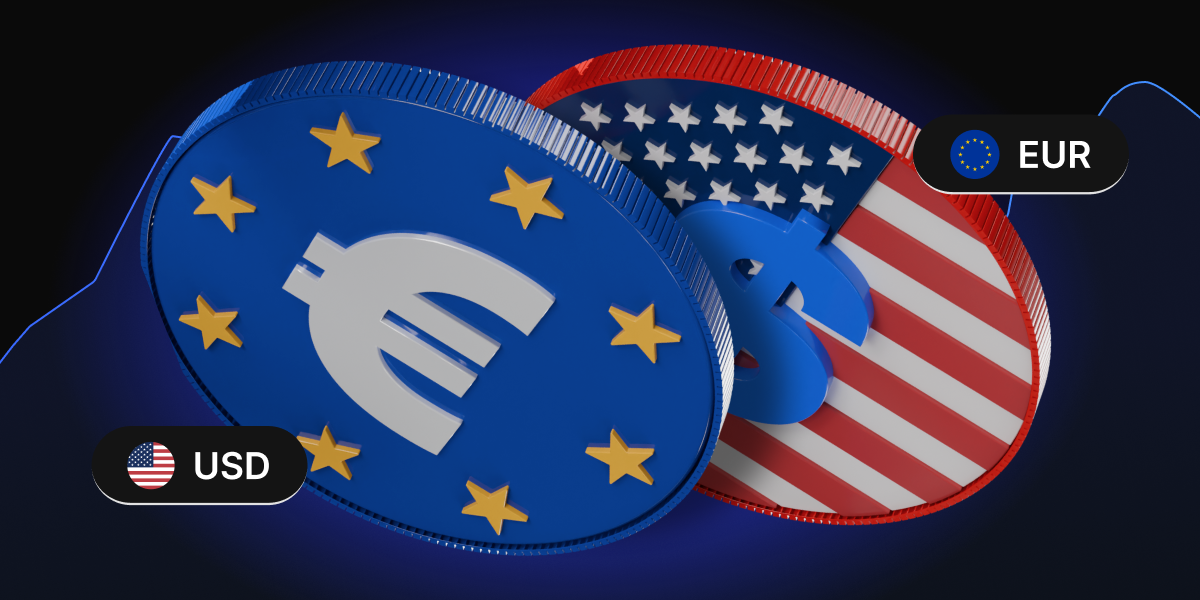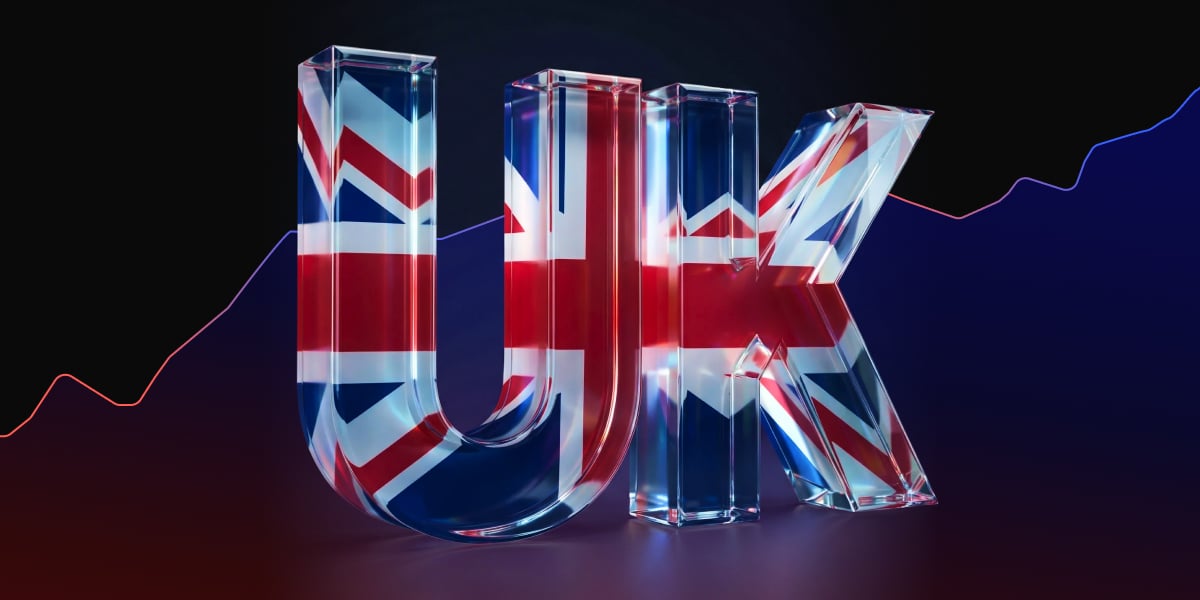Weekly Recap
Stocks remained resilient despite further headlines surrounding President Trump’s trade policies. However, concerns are starting to appear in various surveys. On Friday, the University of Michigan’s consumer confidence dropped to its lowest level since November 2023, while economic output measured by the Composite PMI fell to its lowest level in 17 months.
Meanwhile, Walmart’s worrying outlook and rising inflation concerns also weighed on stock demand in the second half of the week. After reaching an all-time high on Wednesday, the S&P 500 closed down 1.7% across the week, the Nasdaq fell 2%, and the Dow Jones led the losses, dropping almost 3%.
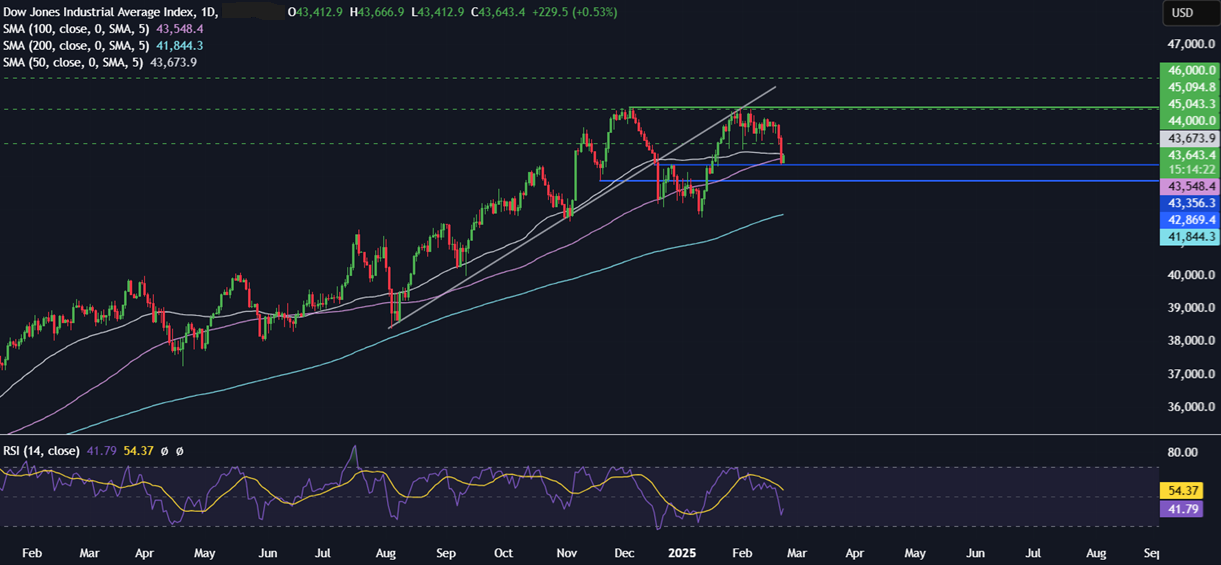
The USD edged modestly lower last week, falling 0.09%, marking the third straight weekly decline, and is now down some 2% since the start of the year. USD weakness comes as the market weighs up Trump’s threat of tariffs and softer data.
Meanwhile, safe-haven demand lifted Gold 1.8% last week to fresh record highs at 2954, marking the eighth straight weekly rise.
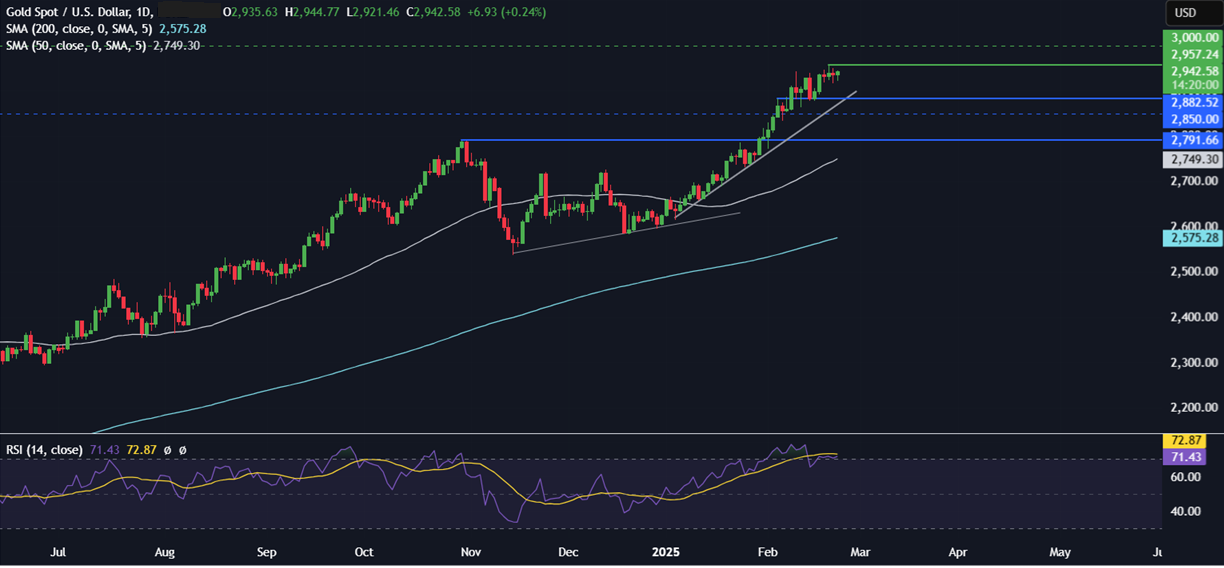
In Europe, stocks and the EUR fell across the week amid rising trade war worries, and Trump’s bilateral peace talks with Russia over Ukraine continued. The US Government seems to be throwing its former allies, Zelenskyi and the EU, under the bus, which could end in an unfavorable outcome for the region.
German elections
Germans headed to the election polls on Sunday to select a news Bundestag, Germany National Parliament, following the collapse of the ruling coalition in November 2024. A snap election was called for in December, seven months earlier than the planned election date. The CDU won the election with just under 29%, and Friedrich Merz is the new chancellor. Merz and the CDU will look to form a coalition with the SPU and Green party. The election comes at a time when the German economy, the largest in the eurozone, is facing headwinds on several fronts. German economic activity posted a second consecutive contraction in 2024. However, the benchmark DAX index continues to trade around time highs.
German IFO business sentiment data is also due on Monday and is expected to rise to 85.8 in February, up from 85.1 in January. Improving sentiment could help the DAX extend its recovery towards fresh record highs.
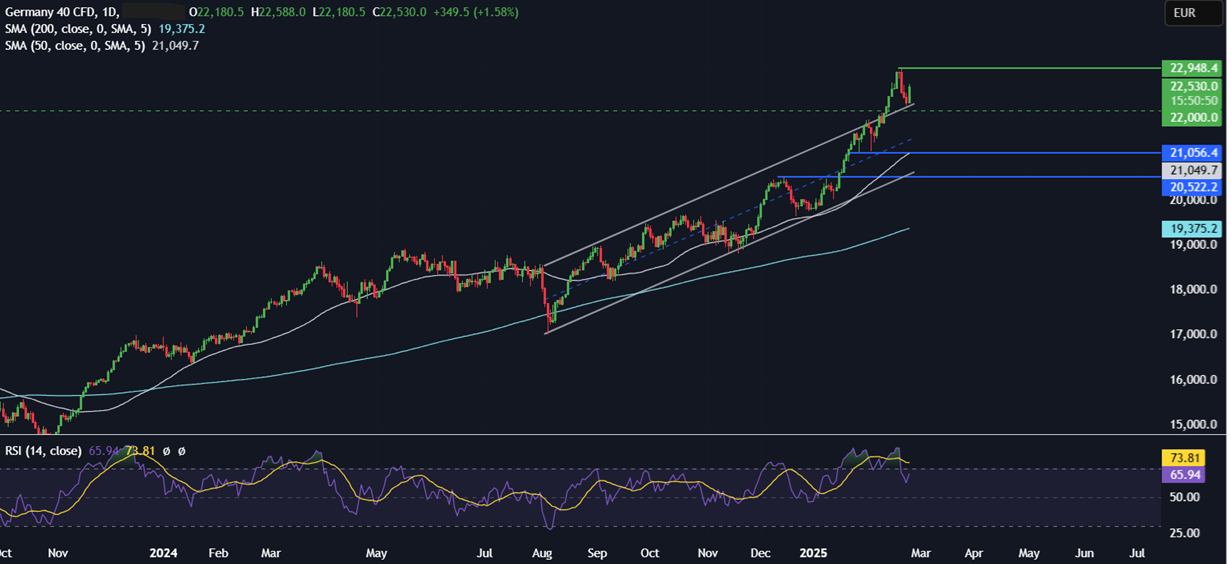
US Consumer Confidence (Tuesday)
U.S. consumer confidence is expected to ease to 103, down slightly from 104.1 previously. The latest report showed consumer confidence falling for a second straight month, although it remained within a range created since 2022. Interestingly, views of current labor market conditions fell for the first time since September, and consumers were less optimistic about future business conditions.
The data comes after the University of Michigan consumer confidence plunged in February, falling for a second straight month. Worries over Trump’s tariffs potentially lifting inflation drove the drop, and stocks fell sharply in response.
Should Tuesday’s data show weaker than expected, U.S. consumer confidence could point to weaker consumption, raising concerns over the outlook for the US economy and pulling stocks lower.
The S&P 500 fell 1.7% last week but found support on the 50 SMA and is rising at the start of the week.
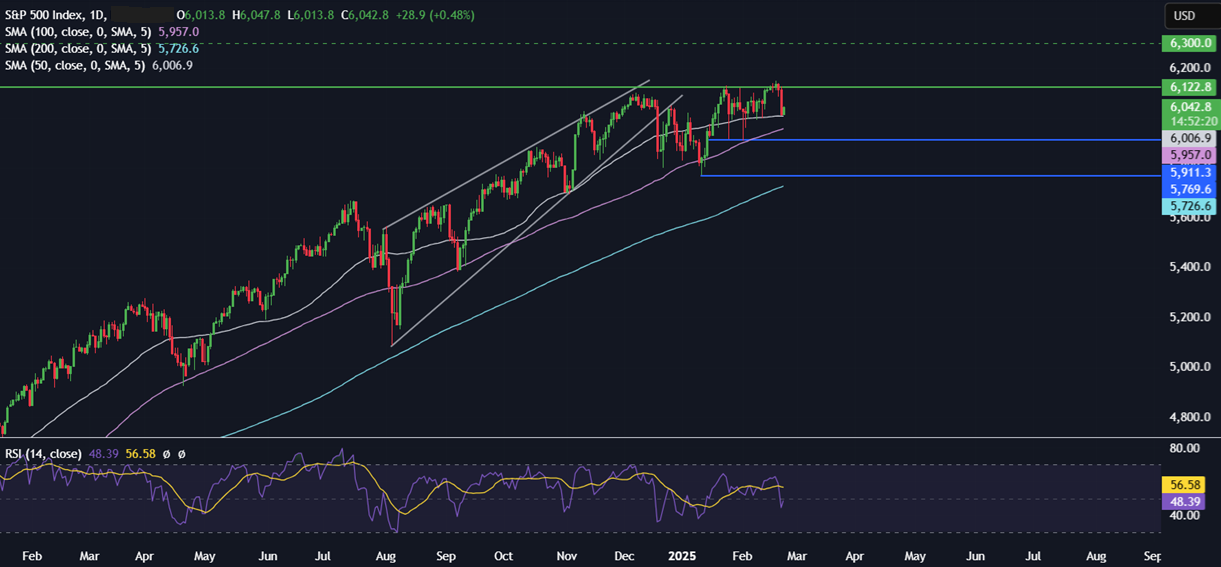
Australia CPI (Wednesday)
Australian inflation has cooled sharply since its peak in December 2022. After bottoming out at 2.2% in September and October, the past few months have seen Australia’s CPI rise to around 2.5% year-on-year. Economists expect CPI to increase to 2.6% YoY in January, marking the third consecutive monthly increase. Still, the Q4 CPI report showed underlying inflation inside the 2% to 3% target on a six-month annualized basis. As a reminder, the RBA cut interest rates by 25 basis points as expected last week, and this was accompanied by more hawkish than expected guidance.
Hotter-than-expected inflation could see AUD/USD extend gains above 0.64.
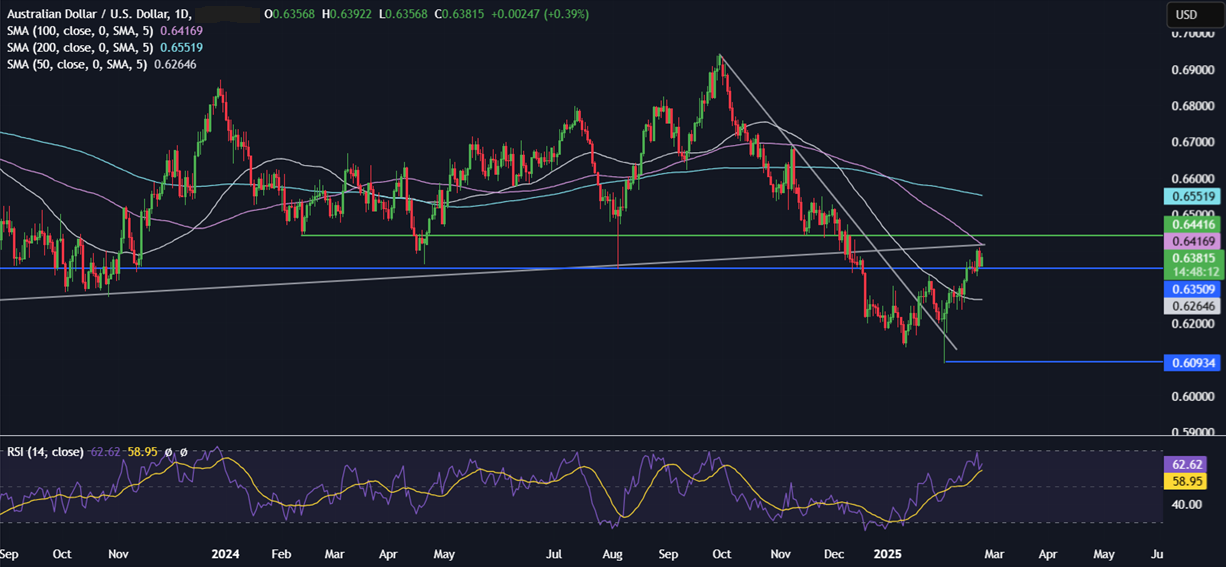
Nvidia (Wednesday)
Nvidia, Wall Street’s AI darling, is set to report quarterly results after the closing bell on Wednesday. Analysts expect NVIDIA to report an EPS of $0.84, which is up 63% from the same period a year earlier. Meanwhile, revenue is expected to rise to $38.26 billion, marking a 73% increase from the same quarter in 2024. Investors are waiting to hear what CEO Jensen Huang says about the environment, AI chip demand, and whether he will address the potential rising competition from China’s DeepSeek.
The report comes as most Magnificent Seven stocks aren’t contributing as much to gains in the S&P 500 as they did in the previous two years. Still, upbeat earnings could fuel the AI trade, boosting not only the chip sector and tech stocks but also the wider market. Ahead of Nvidia’s results this week, the Nasdaq found support on the 50 SMA and is recovering higher.
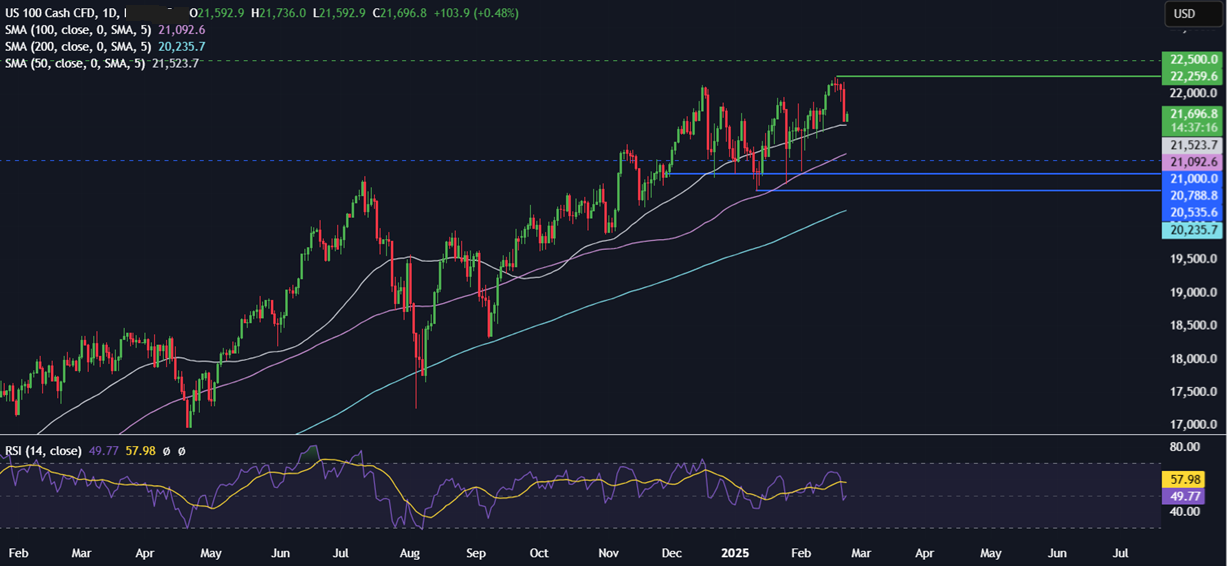
Tokyo core CPI (Friday)
Tokyo core CPI is often considered a good lead indicator for the national core CPI print. Economists expect Tokyo’s core inflation to ease to 2.3% YoY, down from 2.5% previously. The data comes as the yen has strengthened recently on rising BoJ rate hike expectations. More hawkish comments from Bank of Japan officials and solid wage growth and inflation data have supported the view the central bank could hike rates again soon. The yen has also benefited from some risk-off moves, particularly after Friday’s sell-off in U.S. stocks.
Weaker-than-expected Tokyo core CPI could lower the market’s expectations for a BoJ rate hike, which could lift USD/JPY higher.
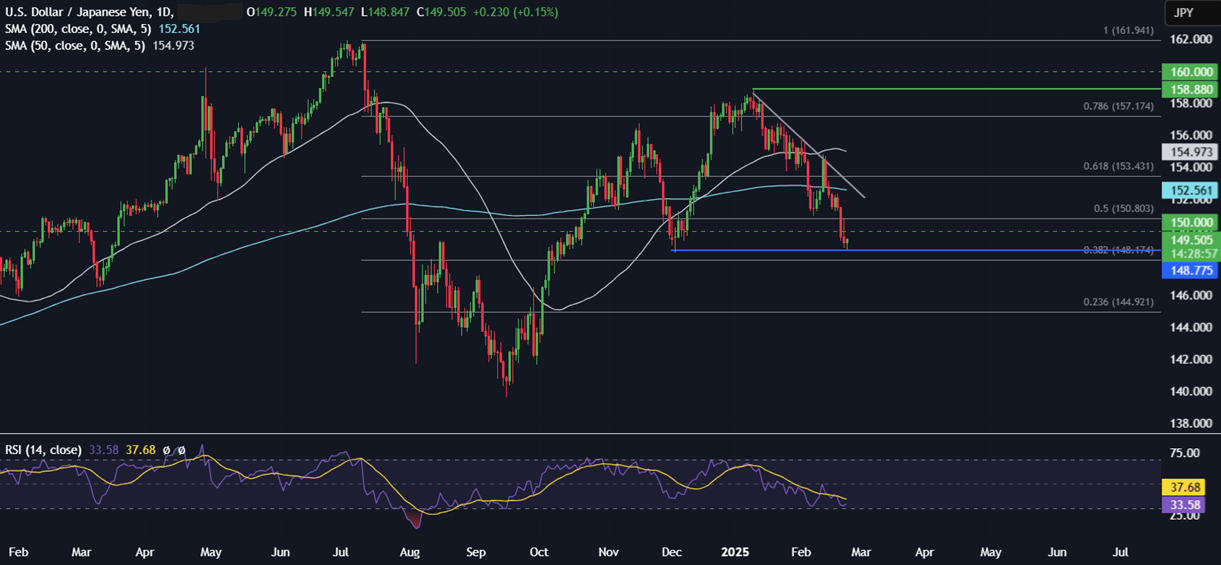
US core PCE (Friday)
The Federal Reserve’s preferred gauge for inflation is expected to rise 2.6% annually, down from 2.8% prior, while on a monthly basis, core CPI is expected to rise 0.3% versus 0.2% previously. The Cleveland Fed is forecasting a similar reading. Due to a difference in components, the data is expected to show a slower pace of inflation increase for the month of January than the CPI inflation report, which showed the largest rise in core prices since April 2023. Still, a 2.6% increase in core PCE for January would imply a meaningful cooling in the 12-month pace of core inflation, supporting a 25 basis point rate cut from the Fed in June.
The market is sensitive to inflation data and worries that Trump’s trade tariffs could lift inflation further.
Hotter than forecast inflation could cause treasury yields to rise, and we could even see the market revise Fed rate cut expectations lower to zero this year, which would lift the USD. This could prevent GBP/USD’s recovery from rising above 1.27.
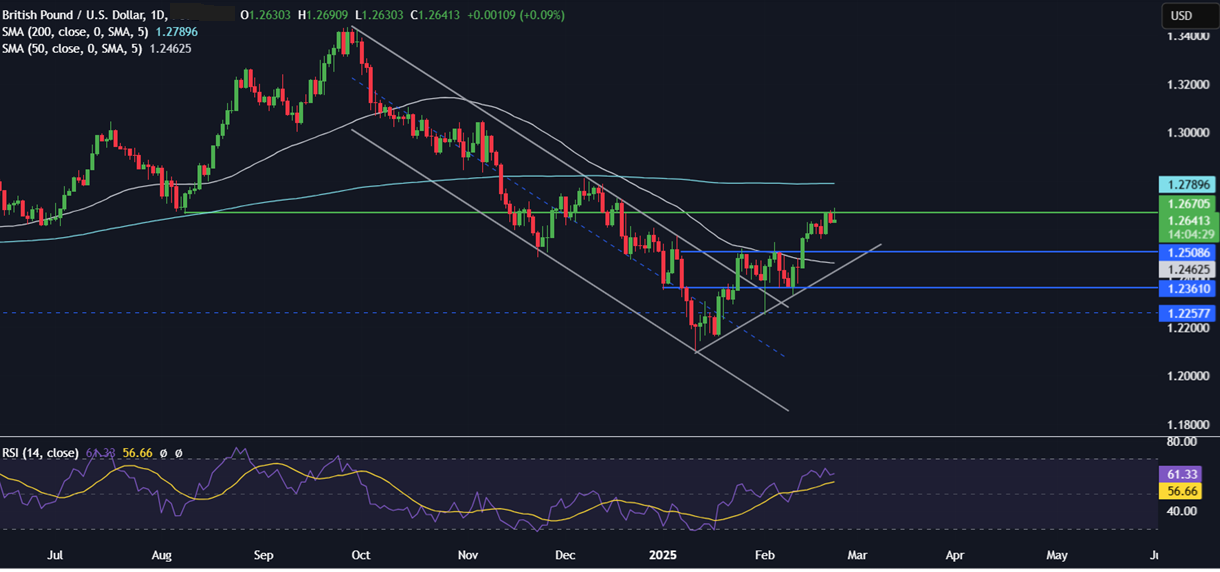
Trade big events with PrimeXBT
The content provided here is for informational purposes only. It is not intended as personal investment advice and does not constitute a solicitation or invitation to engage in any financial transactions, investments, or related activities. Past performance is not a reliable indicator of future results.
The financial products offered by the Company are complex and come with a high risk of losing money rapidly due to leverage. These products may not be suitable for all investors. Before engaging, you should consider whether you understand how these leveraged products work and whether you can afford the high risk of losing your money.
The Company does not accept clients from the Restricted Jurisdictions as indicated in our website/ T&C. Some services or products may not be available in your jurisdiction.
The applicable legal entity and its respective products and services depend on the client’s country of residence and the entity with which the client has established a contractual relationship during registration.


